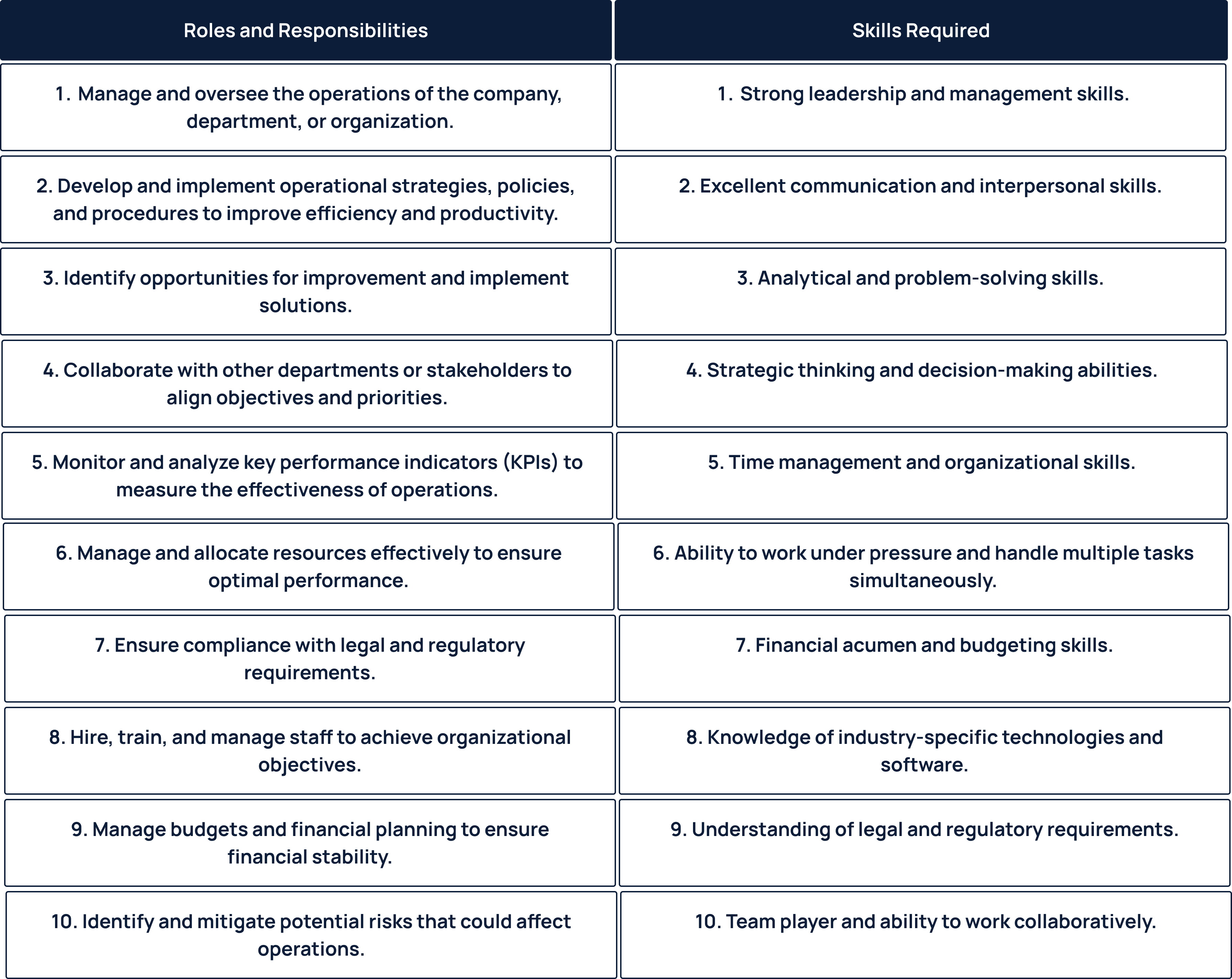Who Should RevOps Report To?


Revenue operations alignment is essential for organizations to achieve their revenue goals. Learn more about who the RevOps team should report to in addition to understanding the roles and skills needed for different members of the RevOps team.
RevOps, short for Revenue Operations, is a relatively new function in many organizations that combines various revenue-related functions such as sales operations, marketing operations, customer success operations, and sometimes even finance and analytics.
The primary goal of RevOps is to align these various departments and functions to optimize revenue generation and improve the customer experience.
In this article, I’ll discuss who should RevOps report to, and the pivotal role RevOps plays in driving lasting organizational success.
When it comes to reporting structure, there is no one-size-fits-all answer, as it depends on the size, structure, and culture of an organization.
However, here are a few common reporting structures for RevOps:

Note: In some organizations, RevOps may operate independently and report directly to the Board of Directors or the CEO.
Ultimately, the reporting structure for RevOps will depend on the organization's unique circumstances, goals, and culture. The key is to ensure that RevOps has a seat at the table and is empowered to make the necessary changes to optimize revenue generation and improve the customer experience.
Here are some useful tips to streamline revenue operations:
By tracking and analyzing these common metrics, an organization can gain insights into how to work together to generate revenue and identify areas for improvement.
Use these common metrics to measure revenue operations alignment:
Read: Should sales report to customer success?
Building credibility and trust is a critical aspect of revenue operations alignment best practices.
Try these strategies to establish credibility and trust within your revenue operations team:
A. Establish a clear communication plan
Communication is critical to building trust within the revenue operations team. The communication plan must outline expectations, objectives, and feedback loops.
Plus, you should ensure that all team members are on the same page and everyone knows what is expected of them.
B. Collaborate closely with sales and marketing teams
Revenue operations alignment requires close collaboration between sales, marketing, and revenue operations. You should work together to ensure that everyone understands their role in achieving the organization's revenue goals.
C. Develop a culture of accountability
A culture of accountability helps build trust within the team.
Set clear expectations and hold team members accountable for their actions. Also, encourage transparency and open communication, celebrate successes, and learn from failures.
D. Use data to drive decisions
Data is critical to revenue operations alignment. Use data to make informed decisions and to communicate the value of revenue operations to the organization.
You also need to ensure that data is accurate, accessible, and relevant to decision-making.
E. Continuously improve processes
Revenue operations alignment requires continuous improvement. Regularly review processes and identify areas for improvement. Implement changes and track the results. Celebrate successes and learn from failures.
F. Invest in training and development
Invest in the training and development of revenue operations team members. Provide opportunities for growth and development, and encourage team members to share their knowledge and expertise with the team.
G. Build a positive team culture
Building a positive team culture is essential to building trust and credibility within the team. Encourage open communication, collaboration, and a focus on results. Celebrate successes and recognize team members for their contributions.
RevOps is a strategic approach that aligns the teams, processes, and technology of an organization to optimize revenue generation and growth.
One crucial aspect of RevOps alignment is defining ownership of the tech stack by:
Find out other such amazing tips in this detailed RevOps best practices guide.
Here are some crucial revenue operations team roles along with their roles and responsibilities and skills required:



In conclusion, there is no standard, templatized answer to who RevOps should report to, as it largely depends on your organizational structure, goals, and priorities.
However, some common options include reporting to the CEO, COO, or CRO, depending on the company's size and strategy.
Ultimately, the key is to ensure that the RevOps team has a direct line of communication with the executive team and works closely with all departments that contribute to revenue generation, including sales, marketing, and customer success.